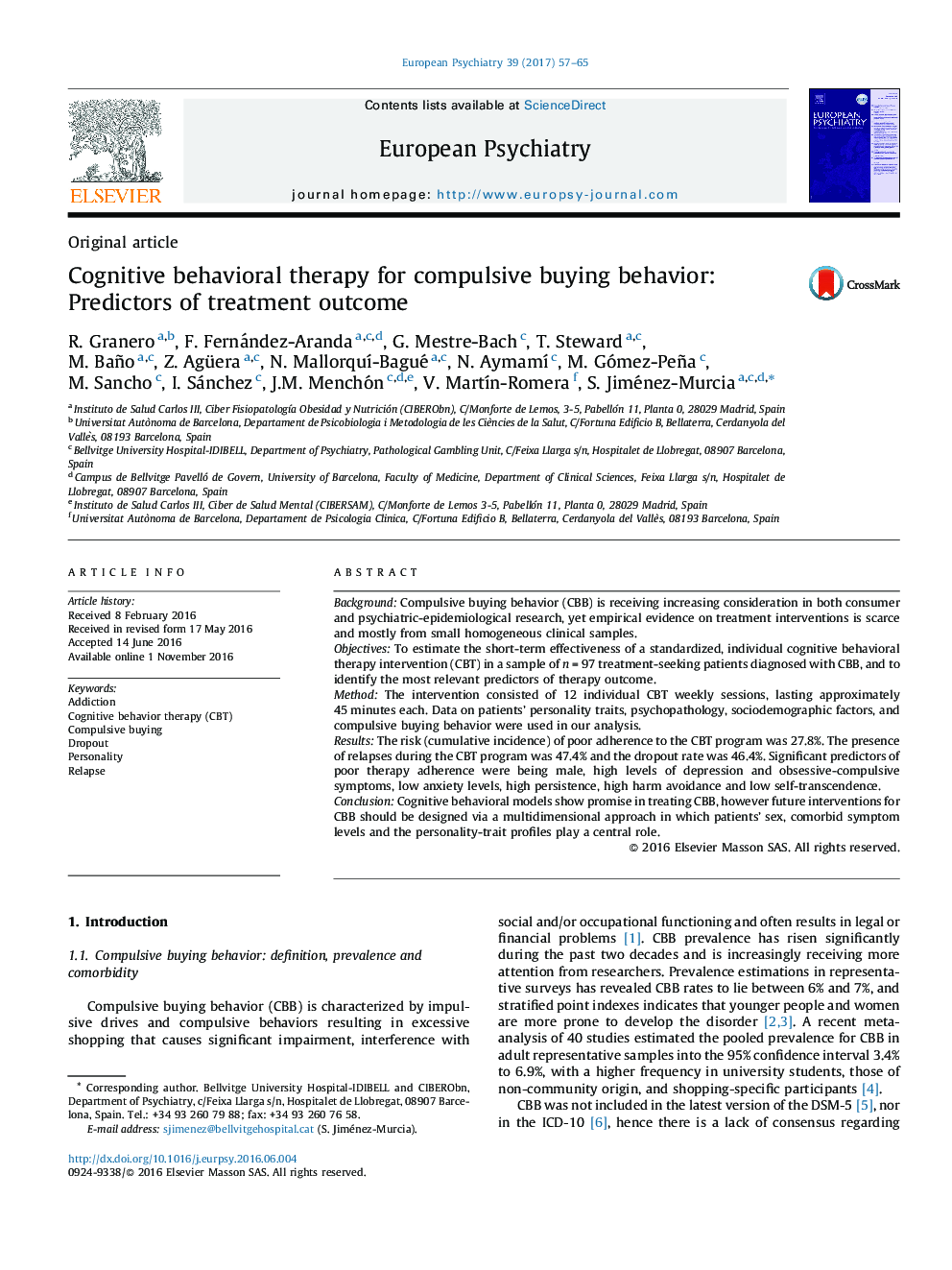| کد مقاله | کد نشریه | سال انتشار | مقاله انگلیسی | نسخه تمام متن |
|---|---|---|---|---|
| 5721618 | 1608051 | 2017 | 9 صفحه PDF | دانلود رایگان |
BackgroundCompulsive buying behavior (CBB) is receiving increasing consideration in both consumer and psychiatric-epidemiological research, yet empirical evidence on treatment interventions is scarce and mostly from small homogeneous clinical samples.ObjectivesTo estimate the short-term effectiveness of a standardized, individual cognitive behavioral therapy intervention (CBT) in a sample of n = 97 treatment-seeking patients diagnosed with CBB, and to identify the most relevant predictors of therapy outcome.MethodThe intervention consisted of 12 individual CBT weekly sessions, lasting approximately 45 minutes each. Data on patients' personality traits, psychopathology, sociodemographic factors, and compulsive buying behavior were used in our analysis.ResultsThe risk (cumulative incidence) of poor adherence to the CBT program was 27.8%. The presence of relapses during the CBT program was 47.4% and the dropout rate was 46.4%. Significant predictors of poor therapy adherence were being male, high levels of depression and obsessive-compulsive symptoms, low anxiety levels, high persistence, high harm avoidance and low self-transcendence.ConclusionCognitive behavioral models show promise in treating CBB, however future interventions for CBB should be designed via a multidimensional approach in which patients' sex, comorbid symptom levels and the personality-trait profiles play a central role.
Journal: European Psychiatry - Volume 39, January 2017, Pages 57-65
